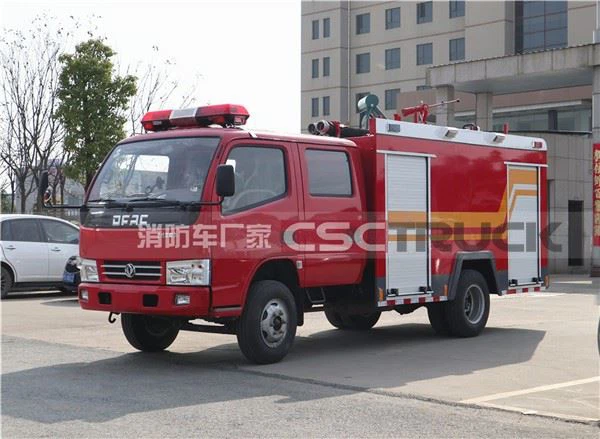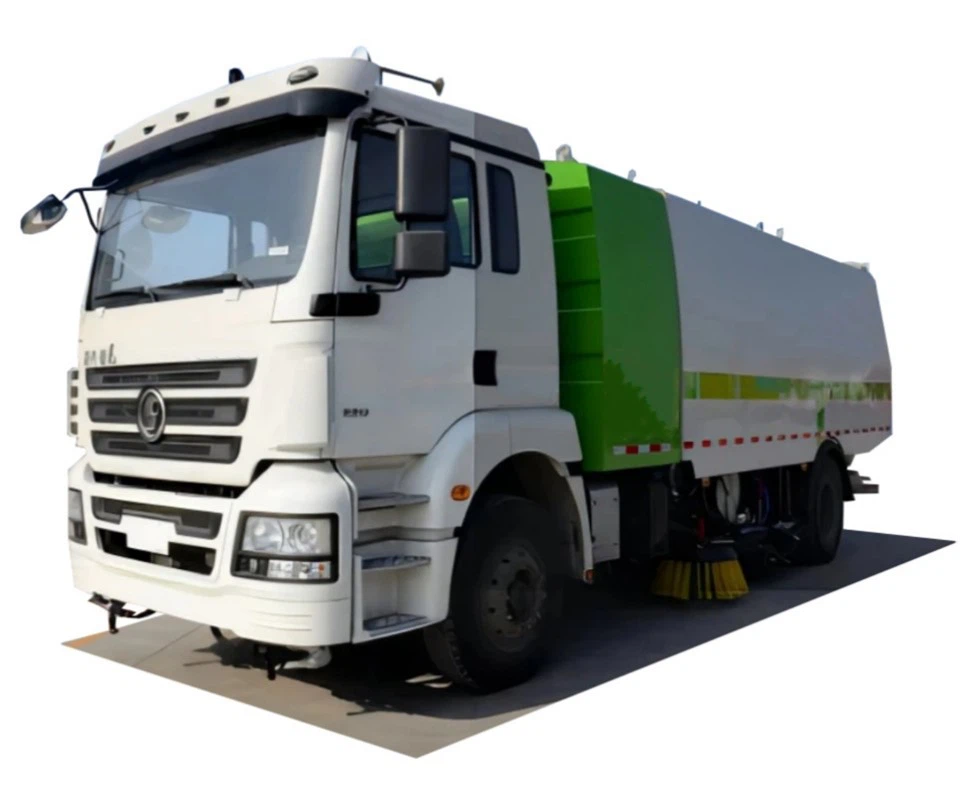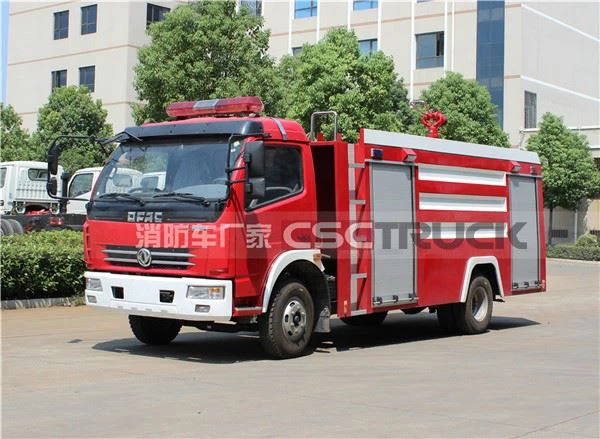Exploring New Ways Garbage Trucks are Revolutionizing Waste Management

Introduction
As urban populations grow and environmental concerns rise, the garbage collection industry faces unique challenges. Traditional garbage trucks often struggle with efficiency, safety, and sustainability. However, advancements in technology and innovative strategies are paving the way for a new generation of garbage trucks. This article will explore these developments, providing insight into how they are transforming waste management practices for cities around the world.
The Evolution of Garbage Trucks
Understanding Traditional Garbage Trucks
For decades, garbage trucks have followed a similar design and operational model. These vehicles typically feature a large, open container that collects waste from residential areas and commercial establishments. The process has several drawbacks, including limited efficiency, excessive noise, and environmental concerns related to emissions.
Key Limitations in Waste Collection
- Efficiency: Traditional routes are often not optimized, leading to increased fuel consumption.
- Safety: Manual handling of waste poses risks to waste management workers and the general public.
- Environmental Impact: High emissions from older models contribute to air pollution.
Innovative Technologies in Modern Garbage Trucks
Automation and Robotics
One of the most significant innovations is the introduction of automation and robotic systems in garbage trucks. These technologies enhance efficiency and safety while reducing the labor burden on workers.
Robotic Arms
Robotic arms can autonomously lift and empty bins into the truck, minimizing the risk of injury for operators. This feature allows for quicker collection times and reduces vehicle downtime.
Autonomous Garbage Trucks
Some cities are experimenting with fully autonomous garbage trucks that navigate routes and collect waste without human intervention. These vehicles use advanced sensors and AI algorithms to analyze their surroundings, ensuring safer operation.
Smart Routing and Scheduling
New garbage trucks are equipped with GPS and real-time data analytics, enabling smarter routing and scheduling. By analyzing traffic patterns and waste generation rates, municipalities can develop optimized collection routes, thereby reducing fuel consumption and operational costs.
Dynamic Route Adjustments
Smart technology allows garbage trucks to adjust their routes on-the-fly based on real-time conditions. For instance, if a truck is stuck in traffic, it can instantly reroute to avoid delays, ensuring timely collection.

Green Garbage Trucks: Environmental Innovations
Electric and Hybrid Garbage Trucks
Environmental concerns have spurred the development of electric and hybrid garbage trucks. These vehicles produce fewer emissions and operate more quietly than traditional diesel trucks.

Benefits of Electric Garbage Trucks
- Lower emissions: Electric models significantly cut down on greenhouse gas emissions.
- Reduced noise pollution: Quieter operation is beneficial for residential areas, especially during early morning collections.
- Cost savings: Electric trucks can save on fuel and maintenance costs over time.
| Type of Garbage Truck | Emissions | Noise Level | Maintenance Cost |
|---|---|---|---|
| Diesel Truck | High | High | Medium |
| Hybrid Truck | Medium | Medium | Lower |
| Electric Truck | Very Low | Very Low | Lowest |
Waste-to-Energy Technology
Some modern garbage trucks come equipped with waste-to-energy systems that seek to convert collected waste into energy during transportation. This innovative approach helps manage waste sustainably while providing an alternative energy source.
Data-Driven Waste Management Solutions
Sensor Integration for Waste Monitoring
Garbage trucks can now incorporate sensors that monitor the fill levels of dumpsters and bins in real-time. This data allows waste management authorities to make informed decisions about collection frequency and routes.
The Role of IoT
The Internet of Things (IoT) has become a focal point in waste management. By integrating IoT devices into garbage trucks, municipalities can track the operational status of their fleet, improving efficiency and reducing costs.
Predictive Analytics in Waste Management
Using historical data and machine learning algorithms, cities can predict waste generation trends. This information allows waste management departments to prepare better for spikes in waste and adjust their collection strategies accordingly.
Enhancing Public Engagement in Waste Management
Mobile Apps and Community Notifications
With the rise of smart garbage trucks, many municipalities are launching mobile applications that inform residents about collection schedules, recycling guidelines, and community engagement programs. These apps serve as a bridge between waste management authorities and the community.
Encouraging Waste Reduction and Recycling
Public awareness campaigns are crucial for enhancing recycling rates. Modern waste management practices, aided by technology, encourage citizens to sort their waste effectively and reduce overall waste generation.
Challenges Ahead for the Garbage Truck Revolution
Budget Constraints and Funding Issues
While the benefits of new garbage truck technologies are clear, budget constraints can hinder municipalities from adopting these innovations. Many cities are grappling with limited resources, making it essential to explore funding options.
Public-Private Partnerships
Establishing partnerships with private firms can provide the necessary funding for upgrading waste management fleets. Through these collaborations, municipalities can leverage advanced technologies without bearing the entire financial burden.
Regulatory Hurdles
Regulations concerning waste management and vehicle emissions can vary significantly across regions. As newer technologies emerge, it’s critical for cities to navigate these regulations to ensure compliance while adopting modern garbage truck solutions.
The Future of Waste Management: A Vision
Integrating AI and Machine Learning
The future of garbage trucks lies in integrating AI and machine learning to enhance operational efficiency further. AI can streamline routing, reduce downtime, and improve predictive analytics to anticipate waste generation patterns more accurately.
Collaboration Across Industries
The waste management industry will increasingly rely on collaborative efforts with technology firms, environmental organizations, and local governments. By working together, stakeholders can implement more effective strategies for a sustainable future.
FAQ Section
What are new ways garbage trucks are becoming more efficient?
New garbage trucks utilize automation, smart routing technologies, and IoT sensors to enhance efficiency, allowing for optimized collection routes and reduced fuel consumption.
How do electric garbage trucks benefit the environment?
Electric garbage trucks produce significantly lower emissions and operate quietly, which helps reduce air pollution and noise in residential areas.
What role do mobile apps play in waste management?
Mobile apps help residents stay informed about collection schedules, recycling practices, and community engagement, promoting better waste management practices.
Are there risks associated with autonomous garbage trucks?

While autonomous garbage trucks can enhance safety, they still face challenges such as technological reliability and adherence to regulations which require ongoing monitoring and development.
What can cities do to fund new garbage truck technologies?
Cities can explore public-private partnerships, government grants, and bonds to secure funding for upgrading and implementing new waste management technologies.
How can communities encourage recycling effectively?
Communities can promote recycling through educational campaigns, providing accessible recycling bins, and initiatives that incentivize proper waste sorting.
